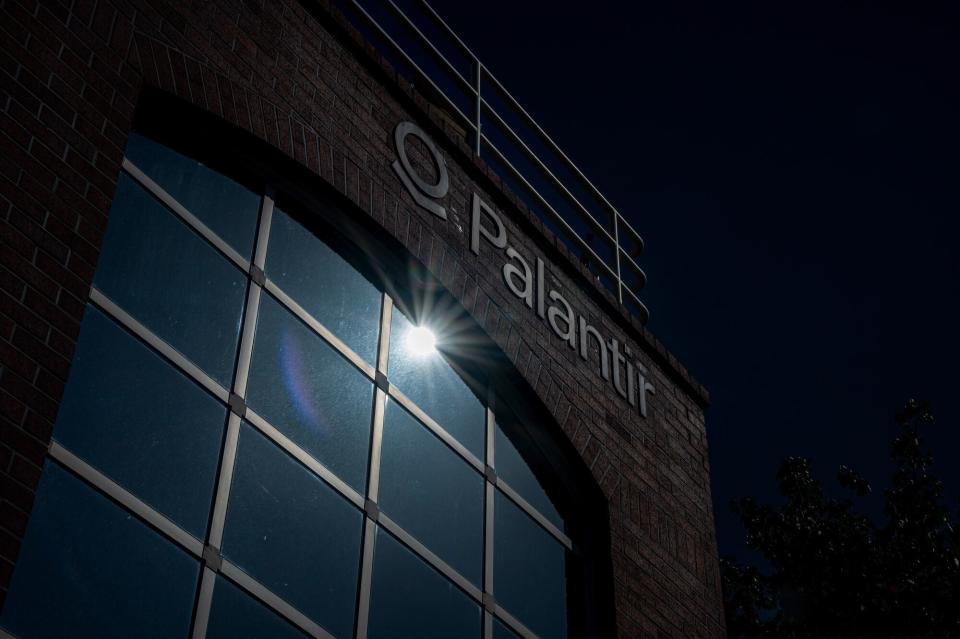Palantir CEO: AI So Powerful ‘I’m Not Sure We Should Even Sell This’

- Oops!Something went wrong.Please try again later.
- PLTR
(Bloomberg) -- Palantir Technologies Inc. Chief Executive Officer Alex Karp said new AI developments at his company are so powerful that “I’m not sure we should even sell this to some of our clients.”
Most Read from Bloomberg
Wall Street Banks Are Using AI to Rewire the World of Finance
Debt-Limit Deal Passes the House, Easing US Default Concerns
Billionaire Perot Warns of Real Estate Recession as Loans Dry Up
At a Palantir customer conference on Thursday, Karp told Bloomberg that he would provide Palantir AI products to the US government and its allies to help further intelligence and defense goals. But he said he’s wary about providing the tools to local law enforcement agencies for purposes such as surveillance. “I don’t know what we should do with this,” he said.
Palantir’s stock has been on a run for weeks after the company described demand for its artificial intelligence products as unprecedented — despite having no pricing strategy and offering few specifics.
Palantir provided more details at its Palo Alto, California, conference, featuring customers that are using its technology, along with its own executives. During an interview with Bloomberg TV, Karp said the 19-year-old company still has not developed a pricing plan.
“I know we have the best product in the market and I know customers will pay us fairly,” the CEO said. When it comes to AI tools, he said, “This is an infinite market.”
Palantir’s artificial intelligence platform, which it calls AIP, is a new product, but the company’s software for aggregating and analyzing data has included aspects of AI for years. Commercial customers including Airbus SE use predictive analytics to anticipate early maintenance problems, while defense forces in the US and Ukraine use Palantir’s AI to interpret satellite images. In military contexts, AI could be useful for distinguishing images of, say, a hospital from a military compound. Information is fed into Palantir’s larger software program to provide situational awareness to military commanders making battlefield decisions.
Some industry critics have voiced concern about the use of AI in military contexts. Karp stressed that the US should be the one to pioneer those systems, rather than its global rivals.
“Are these things dangerous? Yes,” he said. “But either we will wield them or our adversaries will.” Palantir has been providing its software to Ukraine, which is still locked in a war with Russia. Asked whether its AI systems work, Karp responded: “Ask the Russians.”
Karp didn’t quantify the increase in demand, but said the company received as many inbound phone calls in “like, a month” that it typically gets in a year.
Some in tech have called for a slowdown of AI development while guardrails can be put in place to ensure the technology is safe. Karp dismissed the idea of a pause. “We have lots of people who don’t want to roll this out because they have nothing to roll out,” he said.
The company’s all-day event, held at Palantir’s former California headquarters, focused chiefly on the commercial uses of its AI tools. Its customers include Molson Coors Beverage Co., Cardinal Health Inc. and Lockheed Martin Corp., all of which are using some type of Palantir AI-powered product.
(Updates with new CEO comments starting in the second paragraph.)
Most Read from Bloomberg Businessweek
Harvard MBA Grads Enter a Tepid Job Market Hoping for the Best
Goldman CEO Loves Summer Camp So Much He’s Expanded His Portfolio
Can Workplace Ketamine Retreats Improve Vibes in the Office?
Assault Allegations Plague a $1.4 Billion Home Eldercare Startup
©2023 Bloomberg L.P.

 Yahoo Finance
Yahoo Finance